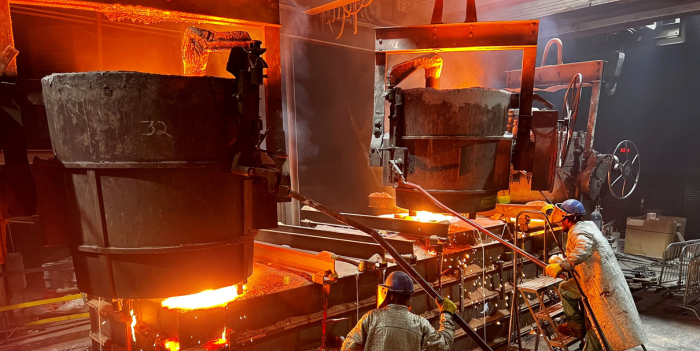
Impact of the Election Results on the M&A Market
Impact of the Election Results on the M&A Market
Donald Trump’s recent victory in the US presidential election is expected to have a significant impact on the M&A market. Although many of president-elect Trump’s policies are still concepts and will have to be legislated and ultimately implemented, the M&A market will likely be impacted in the near term by the stated intentions of this administration during the campaign. Conversely, underdeveloped policies that undergo hasty implementation could result in a pullback in the broader market, negatively affecting M&A activity. Several factors driving M&A activity will include the following:
Deregulation
Deregulation is anticipated, which could make it easier for companies to engage in M&A activities by reducing compliance costs and bureaucratic hurdles. The next administration is likely to replace key figures at regulatory agencies like the FTC and DOJ, leading to a more lenient approach towards M&A approvals. This shift could result in less spending on legal and administrative processes, freeing up capital for acquisitions. The promise of deregulation has already boosted market confidence, with stock markets reacting positively to Trump’s election, encouraging companies to engage in M&A activities.
Certain sectors, such as healthcare, banking and technology are expected to benefit significantly from deregulation. The banking sector could see looser capital requirements and merger approvals, facilitating more M&A activity, while the healthcare and tech sectors might experience less antitrust scrutiny, allowing for more consolidation. Companies might take advantage of the deregulated environment to pursue strategic acquisitions that were previously deemed too risky or complex, leading to a wave of industry consolidation.
Tax Policies
Trump’s proposed tax cuts and extensions of previous tax policies could increase corporate profits, providing companies with more capital to invest in acquisitions. The extension of the 2017 Tax Cuts and Jobs Act (TCJA), which reduced the corporate tax rate from 35% to 21%, is anticipated to increase corporate profits, providing more capital for acquisitions and other growth initiatives.
The TCJA also included provisions encouraging companies to repatriate profits held overseas by offering a one-time lower tax rate on these earnings. If similar policies are extended, companies could bring back substantial amounts of cash to the US, which could be used for M&A activities. Lower corporate taxes mean higher after-tax profits, likely leading to more acquisitions, and favorable tax policies can boost investor confidence, leading to higher stock prices and market valuations.
Tariffs and Trade Policies
Trump’s stance on imposing higher tariffs on imports could impact global supply chains and trade relations. Companies may seek acquisition strategies in order to mitigate these risks, either by acquiring foreign companies to bypass tariffs or by consolidating to strengthen their domestic operations. Higher tariffs on imports, especially from countries like China, could disrupt established supply chains, leading companies to pursue acquisitions of foreign companies to maintain their supply chains and avoid additional costs associated with tariffs. An alternate strategy is for companies to consolidate their domestic operations, strengthening their market position and reducing reliance on imported goods. Companies might also engage in strategic sourcing and tariff engineering to minimize the impact of tariffs, altering their supply chains to source components from countries with lower tariffs or changing the way products are assembled to qualify for lower tariff rates.
Companies that are reliant on China and other countries impacted by tariffs may now be challenged to find suitors in M&A transactions, however. The lack of clarity around where the tariffs will be and how much will make a transaction for a company with heavy Chinese content very difficult. Additionally, it is plausible that an overreaching tariff policy could result in a broad pullback in economic growth, hindering M&A activity across most sectors.
Market Confidence
The stock market’s positive reaction to Trump’s win, with significant gains in indices like the S&P 500 and Dow Jones, reflects investor confidence. This optimism could translate into increased M&A activity as companies feel more secure about the economic outlook. Positive stock market reactions signal strong investor confidence in the new administration’s economic policies, leading to higher stock valuations and a more robust market environment. Companies with higher market valuations can use their stock as valuable currency for acquisitions, making it easier and more attractive to pursue M&A deals. Higher stock prices can increase a company’s market capitalization, giving them greater financial flexibility to raise funds through equity financing, which can be used to finance acquisitions. A bullish stock market often reflects broader economic confidence, encouraging companies to make strategic investments, including M&A activities.
Sector-Specific Opportunities
Certain sectors, such as healthcare, financials, energy, and aerospace and defense, are expected to benefit from Trump’s policies, leading to targeted M&A activity within these industries. Deregulation in the healthcare and financial sectors could lead to increased M&A activity, especially with potential rollbacks of regulations. Trump’s policies favoring fossil fuels could boost the oil and gas sector, leading to increased profits and opportunities for expansion. Increased defense spending under Trump’s administration could benefit aerospace and defense contractors and related industries, leading to acquisitions to expand capabilities. At the same time, Trump has signaled an isolationist sentiment from a foreign policy perspective and also plans to institute an unofficial Department of Government Efficiency (DOGE) which would focus on ways to reduce spending. The healthcare sector could also see significant M&A activity due to potential changes to the Affordable Care Act, creating opportunities for consolidation among healthcare providers and insurers. While the technology sector could benefit from favorable tax policies and deregulation, driving innovation and growth.
Some sectors might also realize challenges related to stated policies or elimination of some legacy policies such as the IRA and CHIPS Act, which were put in place by the outgoing administration. This may put related investments at risk and make for an uncertain M&A market in onshoring manufacturing and production of technology components and batteries for electric vehicles. Large investments made in these sectors over the past three years could result in depressed valuations and even orphaned companies in vulnerable industries.
Overall, Trump’s presidency may likely create a more favorable environment for M&A activity, driven by deregulation, favorable tax policies, and increased market confidence. Although there is much work to be done by the incoming administration to put these policies into action, early indicators point to a resurgence in M&A activity across several sectors. Not all sectors will see gains in activity, while others may realize more fundamental risk, but broad policy signaling from the incoming administration will spur M&A activity.
Get in Touch
Tell us a little about yourself and we will get in touch as soon as we can.

 Back to news articles
Back to news articles


